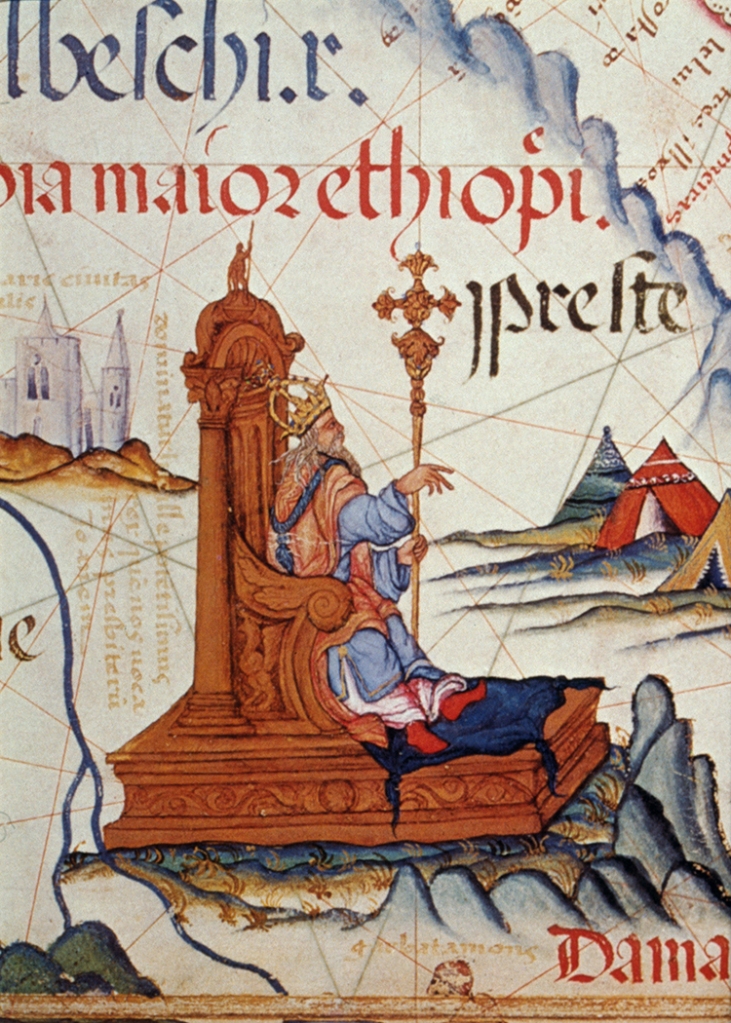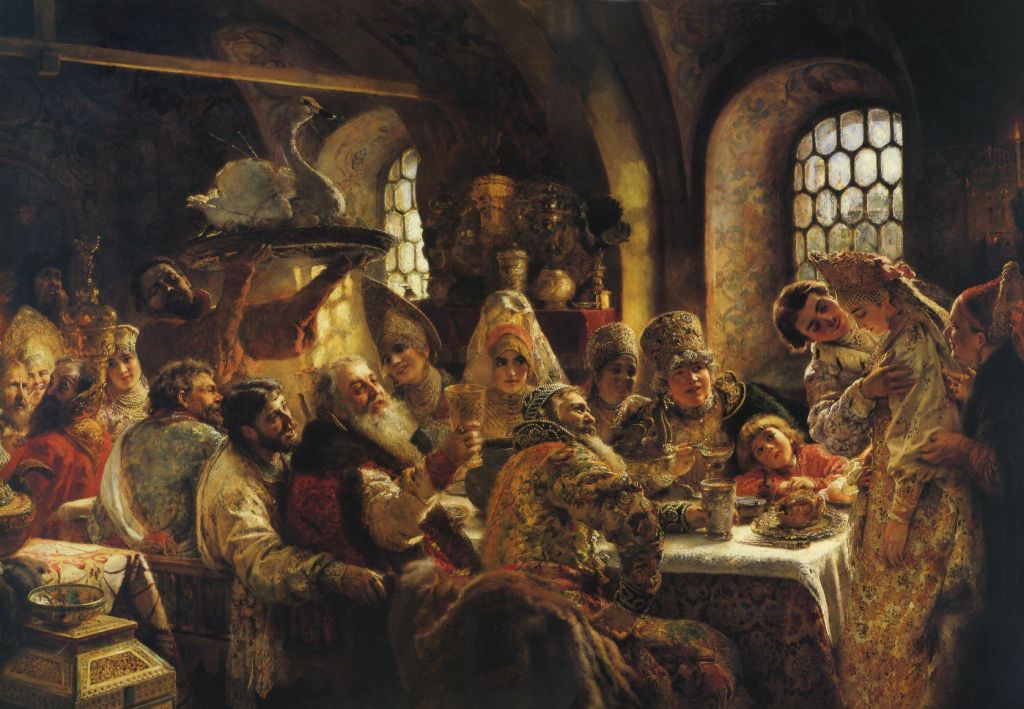Ten years after the publication of his last novel, Kazuo Ishiguro has come out with a new book, The Buried Giant. A former winner of the Man Booker Prize and considered one of the best British writers alive today, Ishiguro is a master of the understated. His works feature narrators that speak so simply and so plainly, they appear to have almost no affect at all. Still, their stories are dark and poignant, and it’s often not until the last few pages of an Ishiguro novel that we realize how deeply we’ve been moved.
In The Buried Giant, an elderly couple sets off on a journey through a mythical England populated by ogres, dragons, knights and giants. Axl and Beatrice are in search of their son, whom they can’t quite remember how they lost. This is because the inhabitants of The Buried Giant’s mythical world suffer a collective amnesia, a ‘mist’ that keeps them from holding onto certain memories, both personal and historical. As we travel with Axl and Beatrice, the novel asks us what memory (and forgetting) means to a person, to a couple, to a society. In many ways, the book is surprising (The New York Times calls it ‘a departure’), but it also showcases some of Ishiguro’s most essential qualities as a writer: subtle prose, a dreamlike atmosphere, and powerful questions about loss and memory.
I sat down with Ishiguro in Knopf’s office early on a Friday, just before it began to snow. We talked about his writing process, collective memory, Inglourious Basterds, and his new novel’s recent role in the conversation about genre.
Chang: Each of your novels is so unlike the one that came before it. The Buried Giant has surprised a lot of readers. Can we talk about what influenced you while you were working? What books were you reading, or drawing upon?
Ishiguro: Well, I did a great deal of research and read quite a lot before I wrote the book. But I don’t know that the books I read during the actual writing process necessarily have much to do with it.
I find that when you’re writing, it becomes quite a battle to keep your fictional world in tact. In fact, as I write, I almost deliberately avoid anything in the realm of what I’m working on. For instance, I hadn’t seen a single episode of Game of Thrones. That whole thing happened when I was quite deep into the writing, and I thought, ‘If I watch something like that, it might influence the way I visualize a scene or tamper with the world that I’ve set up.’
Chang: It sounds like the planning stage and the writing stage were two very separate parts of your process.
Ishiguro: Yes, it’s really when I’m planning the project that I actively look for ideas and read very widely. I spend a lot of time planning. I’m quite a deliberate writer in that way. A lot of writers I know just work with kind of a blank canvas. They feel it out and improvise on it and then they look to see what kind of material they’ve got.
I’ve never been able to do that. Even at the start of my career, when maybe I would have been a little more reckless. I’ve always needed to know quite a lot about the story before I start to write the actual prose. I’ve always needed a solid idea before getting started.
Chang: How do you know when you have a solid idea?
Ishiguro: It’s got to be something that I’m able to articulate to myself in about two to three sentences. And those sentences have to be compelling, much more than the sum of their parts. I should be able to feel the tension and emotion arising from that little summary I’ve created, and then I know I’ve got a project to work on. With The Buried Giant, for example, the starting point was something like: ‘There’s a whole society where people are suffering some sort of collective, and strangely selective, amnesia.’
Chang: And that was the summary you had in mind before you sat down to the page?
Ishiguro: Yes, but that’s not quite enough for an idea. That’s more of a concept. I guess if I had to write the next line of the summary, it would be, ‘There’s a couple who fears that without their shared memory, their love will vanish.’ And then the third line would be that the nation around them is in some kind of strange tense peace.
Alright, so I didn’t literally write those sentences down, but that’s how I start a project. I start with something quite abstract like that, and then I start to plan and do my research.
I tend to read quite a lot of non-fiction around the themes I want to explore.
Chang: Are you fairly careful about curating what you do read or think about while you plan a novel?
Ishiguro: Not necessarily. For this book in particular, I read a very good Canadian book called Long Shadows by Erna Paris, It was written in the early 2000s and documents her travels, looking at the various kinds of brewing or buried trouble. There was also Postwar by Tony Judt, and Peter Novich’s The Holocaust in American Life.
Now, those nonfiction books went into it the research part, but I find that almost anything around that point can be influential. Around that stage is when I’m most sensitive, or most open to influence. Almost every movie I see, every book I’m reading, I’m thinking: ‘Is there something here that might nudge me toward an image, or an idea, or even a technique?’
I remember I happened to be watching Tarantino’s Inglourious Basterds at a formative point. There’s a long scene where the American guys are in a German bar, pretending to be German soldiers, and they’re playing this game and speaking in bad German, and it goes on for this incredible amount of time. You know it’s going to end in some terrible violence, but it goes on and on.
That seems to have nothing to do with my book. No one would detect Tarantino as an influence while reading The Buried Giant, but I thought it was such a great way to deal with an explosion of violence. You actually don’t have to spend a lot of energy on the violence itself. It’s the lead up, the tension. So, yes, I’m quite open to reading or hearing or seeing anything at that point in the process.
Chang: What was behind the decision in setting The Buried Giant in a mythical, medieval England? Did you know this would surprise people the way it has?
Ishiguro: Often the setting comes quite late in the process. I usually have the whole story, the whole idea, and then I hunt for the location, for a place where I can set it down.
It’s sort of like I’ve wandered into people’s countries without knowing where I’ve landed.
So I’m a little bit naïve, maybe, about what the finished thing will look like in terms of genre. It’s sort of like I’ve wandered into people’s countries without knowing where I’ve landed. And after I’ve been there for quite some time, someone says ‘you realize you’re in Poland now.’ And I say, ‘Oh really? I just followed this trail of stuff I needed.’
I didn’t wonder how people would define or categorize The Buried Giant until it was done. And then as publication approached, I started to see it from the outside. I’d been so absorbed with trying to get the thing to work from the inside.
I did think about setting it in a very real contemporary, tense situation. I considered Bosnia in the 1990s as a setting, and well, I thought about Rwanda but didn’t consider it for too long, because I feel unqualified to write about Africa. I know so little about African politics, African culture. The disintegration of Yugoslavia I felt closer to, because I live in Europe. These massacres were occurring right on our doorstep. I wanted to look at a situation in which a generation (or two) has been living uneasily in peace, where different ethnic groups have been coexisting peaceably and then something happens that reawakens a tribal or societal memory.
Chang: What made you ultimately decide on this more distant reality?
Ishiguro: Well, if I had done that you’d be asking me why I was suddenly interested in Yugoslavia, and if I have relatives that used to go there, and what do I think about what Milosevic did or said on this or that day. It becomes a completely different kind of book. Some people write those kinds of books brilliantly. It’s almost like reportage. They’re very powerful and very urgent books.
Maybe in the future I’ll feel compelled to write that kind of specific and current book, but right now I feel that my strength as a fiction writer is my ability to take a step back. I prefer to create a more metaphorical story that people can apply to a variety of situations, personal and political.
Setting the book in an other, magical world allows me to do that. Every society, every person even, has some buried memories of violence or destruction. The Buried Giant asks whether awakening these buried things might lead to another terrible cycle of violence. And whether it’s better to do this at the risk of cataclysm, or whether it’s better to keep these memories buried and forgotten.
The same question applies at the personal level, say, in a marriage. When is it better to just leave certain things unsaid for the sake of getting on together? Is there something phony about a relationship if you don’t face everything that’s happened? Maybe it makes your love less real.
Chang: Do you feel that the conversation about genre boundaries, which has been a major focus of the book’s reviews and press, has taken away from these questions the book is asking?
It’s a much broader conversation, isn’t it? What do we call fantasy?
Ishiguro: I didn’t actually anticipate that there would be so much attention paid to the genre of the book. I read Neil Gaiman’s review in the NYTBR which opens with the words, “Fantasy is a tool of the storyteller.” It’s a very interesting piece that, in a way, is much bigger than my book. It’s a much broader conversation, isn’t it? What do we call fantasy? What do we call sci-fi? I guess the subtext is that mainstream fiction and literary fiction look down on fantasy tropes but, as Gaiman argues, those tropes can be very powerful, and they’re part of an ancient tradition. There were a couple of other pieces that appeared like that. And of course, there was a bit of a spat with Ursula K LeGuin. Although, she’s since retracted what she said on her blog, which was gracious of her. I think it’s a much larger dialogue she’s been involved with in the past with authors like Margaret Atwood, for example.
I think the positive side of all of this is that it is quite an exciting time at the moment in fiction. I do sense the boundaries are breaking down, for readers and for writers. Younger readers move very freely between genres and between what used to be fairly strict categories of ‘popular’ and ‘literary’ fiction. My daughter and her generation, for example. They were quite literally the same age as Harry and Hermione when the first Harry Potter book was published. In a way, they kind of followed that whole storyline in real time, year by year.
For that generation, one of the coolest, most exciting things to happen in their young lives was reading books. Of course, now they read widely just like any person interested in literature, but their foundation, their love of books is based on Harry Potter, Philip Pullman—that whole explosion of very intelligent children’s literature that they grew up with. It’s very exciting, I think—this shift in what constitutes ‘serious’ fiction.
Chang: Even though The Buried Giant has arguably nothing to do with Japan, I love the way there’s still something Japanese that comes across in its style and tone. Are you very conscious of language and tone when you are writing or does that come more naturally?
Ishiguro: At the beginning of my career it was quite deliberate. A Pale View of Hills was set in Japan. My characters were Japanese, so of course they had to speak in a Japanese kind of English. And in An Artist of the Floating World, the characters were not only Japanese but they were meant to be speaking in Japanese even though it was written in English, so I spent a great deal of energy there finding an English that suggested there was Japanese being spoken or translated through. Maybe some of that effort has stayed with me. I use a formal, careful kind of English, but to some extent that may just be my natural or preferred way of using the language.
For example, the butler in Remains of the Day is English, but he often sounds quite Japanese. And I thought that was fine, because he is a bit Japanese.
Chang: Right, that’s one of the brilliant parts of his character.
Ishiguro: In The Buried Giant, I wasn’t thinking consciously about Japan or Japanese, but the priorities of the language, I suppose, are still the same. I quite like language that suppresses meaning rather than language that goes groping after something that’s slightly beyond the words. I’m interested in speech that kind of conceals and covers up. I’m not necessarily saying that’s Japanese. But I suppose it goes with a certain kind Japanese aesthetic; a minimalism and simplicity of design that occurs over and over again in Japanese things, you know. I do like a flat, plain surface where the meaning is subtly pushed between the lines rather than overtly expressed. But I don’t know if that’s Japanese, or if that’s just me.





























You must be logged in to post a comment.